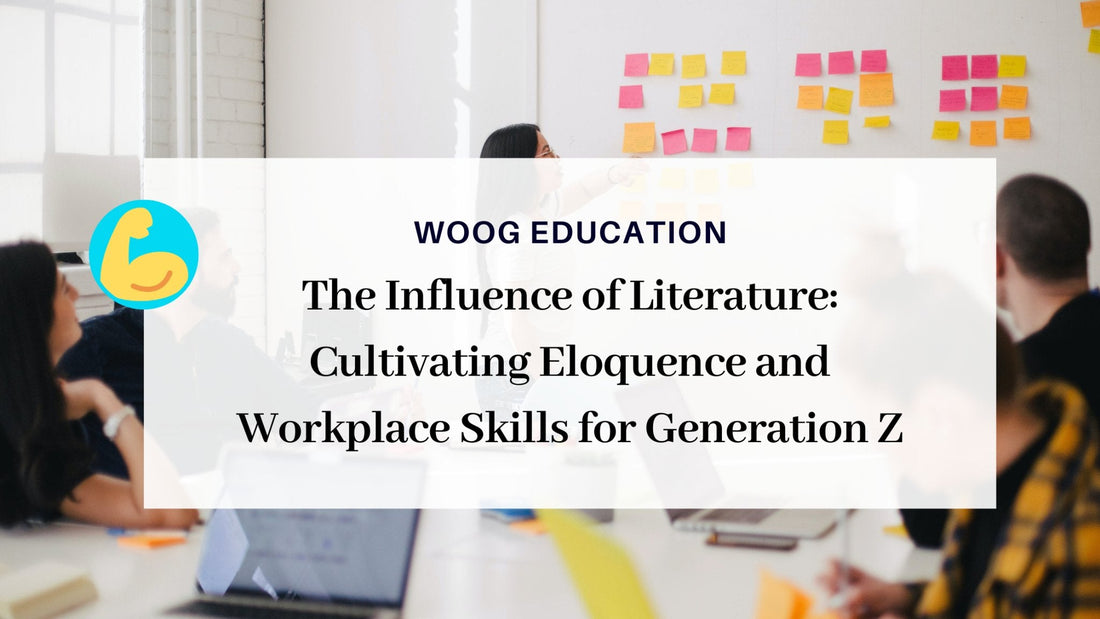In an age defined by technological advancements and rapid communication, the significance of literature in shaping workplace skills, particularly eloquence, cannot be overstated. For Generation Z, born in a digital era, the benefits of literary engagement extend far beyond academic study. Let's delve into how literature, especially in developing eloquence, empowers Gen Z with essential workplace proficiencies.
- Cultivating Effective Communication
Literature serves as a conduit for effective communication skills. For Gen Z, engaging with diverse narratives, complex characters, and varied writing styles fosters linguistic versatility. This exposure translates into articulate expression, allowing them to communicate persuasively and concisely in the workplace.
- Enhancing Critical Thinking and Analysis
Reading and interpreting literary works nurture critical thinking abilities. Gen Z's engagement with multifaceted narratives encourages analytical skills, enabling them to assess situations, identify patterns, and make informed decisions—a skill vital for problem-solving and strategic planning in professional settings.
- Developing Empathy and Emotional Intelligence
Literature exposes readers to diverse perspectives and human emotions. Gen Z, navigating collaborative work environments, benefits from this exposure by understanding diverse viewpoints, empathizing with colleagues, and building stronger interpersonal relationships.
- Sparking Creativity and Innovation
Literature fuels imagination and creativity. Gen Z, renowned for their innovative thinking, draws inspiration from literary works to ideate creatively, devise marketing strategies, propose inventive solutions, and think outside the box in addressing workplace challenges.
- Confidence in Expression
Engagement with literature cultivates confidence in self-expression. Gen Z, often characterized by their confidence, benefits from articulating ideas eloquently during presentations, meetings, or discussions, enhancing their ability to influence and lead in the workplace.
- Adaptability and Resilience
Literature often portrays societal changes and adversities. Gen Z's exposure to diverse narratives promotes adaptability and resilience, preparing them to navigate uncertainties and changes in the workplace with poise and flexibility.
- Cultural Awareness and Diversity Appreciation
Literary works offer insights into different cultures and societal issues. In a globally connected workplace, Gen Z's exposure to diverse narratives fosters cultural awareness, enabling them to navigate cultural differences respectfully and promote inclusivity.
- Personal Growth and Ethical Decision-Making
Literature provides lessons in morality, ethics, and human behavior. Gen Z's exposure to ethical dilemmas in literature aids in their personal development, fostering ethical decision-making and integrity in their professional lives.
- Fostering Team Collaboration
Literature encourages collaboration and teamwork. For Generation Z entering collaborative workspaces, exposure to stories of teamwork and collective problem-solving helps them understand the dynamics of cooperation. By drawing parallels between literary characters' interactions and real-life teamwork, Gen Z hones their ability to work effectively in teams, fostering a harmonious and productive work environment.
- Inspiring Leadership Qualities
Literature often presents inspirational and influential characters. Gen Z, engaging with such characters and their journeys, learns invaluable lessons about leadership, resilience, and determination. These narratives inspire leadership qualities like decision-making, adaptability, and guiding through challenges, empowering them to emerge as influential leaders in their professional endeavors.
Conclusion: Literature's Profound Impact on Gen Z in the Workplace
In conclusion, literature, especially in developing eloquence, equips Generation Z with multifaceted workplace skills. It enhances their communication, critical thinking, empathy, creativity, adaptability, cultural appreciation, confidence, and ethical decision-making—qualities crucial for thriving in today's dynamic work environments.
As Gen Z integrates into the workforce, their exposure to literature serves as a cornerstone for holistic professional development, accentuating their strengths and augmenting their contributions to the evolving landscape of modern workplaces.
